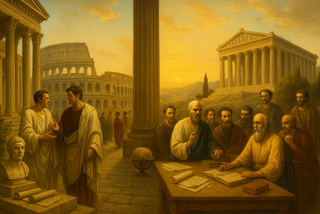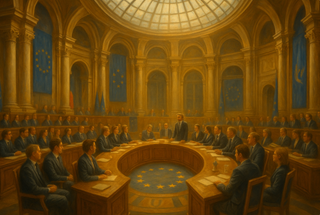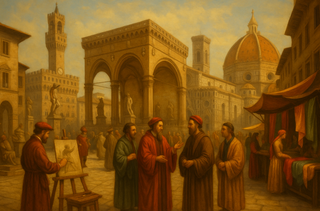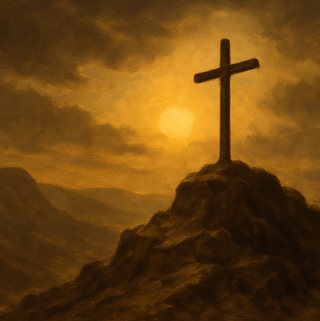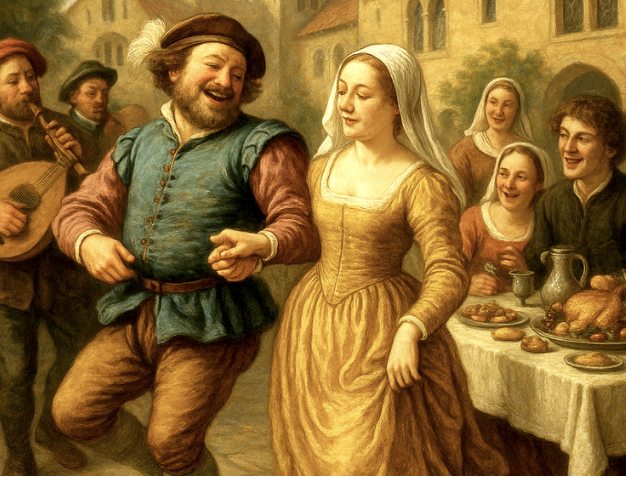
Reflective Commentary (2025) The following essay was written in 2014 for one of my earliest doctoral courses at Faulkner University. Dr. Robert Woods led the course titled “Introduction to Human Letters." An Evaluative Inquiry into the Life of the Modern Liberal Individual Leisure and festivity together form the foundation
by Shawn D. Mathis, PhD, MSc (Oxon), MA
Reflective Commentary (2025) This essay examines the layered meeting point of pagan and Christian traditions in Renaissance Florence, using the transformation of the Temple of Mars into the city's Baptistry as a symbol of wider cultural and theological interplay. My intent is not only to recount historical transitions
by Shawn D. Mathis, PhD, MSc (Oxon), MA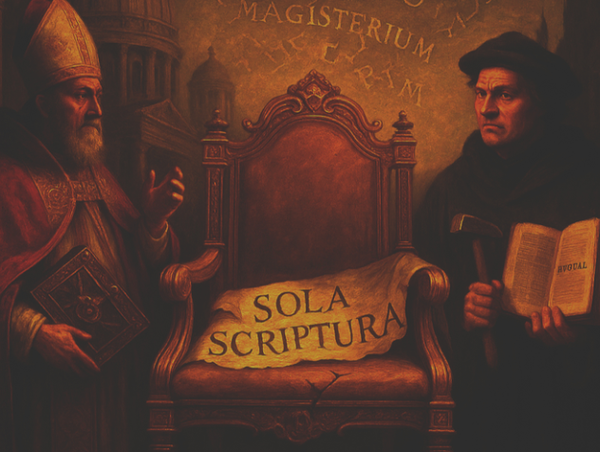
Reflective Commentary (2025) Composed during the course of my doctoral research, this essay is presented as an original scholarly inquiry into the nuanced negotiations of faith, authority, and the hermeneutics of tradition. As with Underhill’s steady regard for the interior life and Ackroyd's measured historicism, my approach
by Shawn D. Mathis, PhD, MSc (Oxon), MA
Reflective Commentary (2025) Looking back at this essay more than a decade after I first wrote it in 2014, I see how my thinking about "wasted time" has changed. When I wrote this as a doctoral student, leisure, contemplation, and intellectual growth were seen as important. Now, the
by Shawn D. Mathis, PhD, MSc (Oxon), MA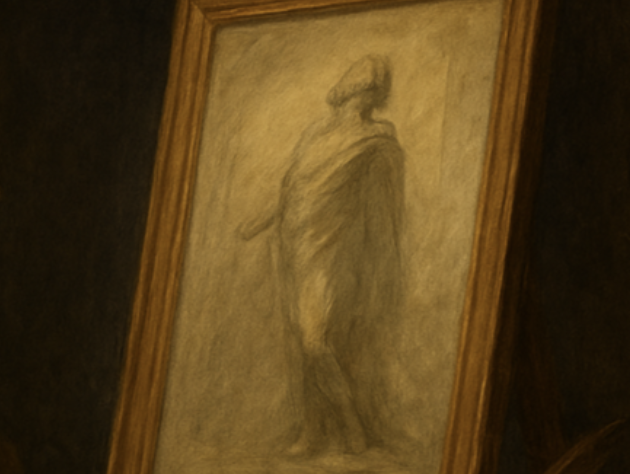
Reflective Commentary (2025) On reflection, writing this essay was both a rigorous and rewarding endeavour. My intention was to break down Kant’s dense definition of ‘fine art’ into manageable parts in order to make sense of his philosophy for myself and, hopefully, for my readers. I approached this by
by Shawn D. Mathis, PhD, MSc (Oxon), MA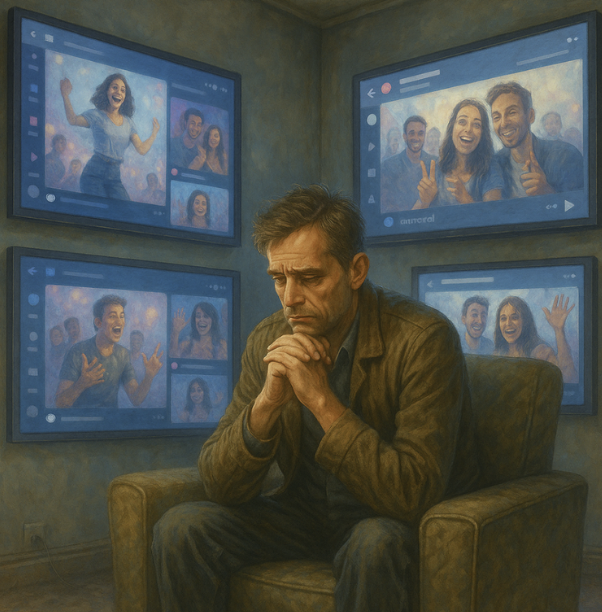
Reflective Commentary (The Modern Wall—Media Saturation in 2025) Ray Bradbury published Fahrenheit 451 on October 19, 1953—seventy-two years ago, but who’s counting in decades when the man seemed to write in centuries? Was he a prophet? Or something else; something we don’t quite have a word
by Shawn D. Mathis, PhD, MSc (Oxon), MA
Reflective Commentary (2025) The following essay was written in 2014 for one of my earliest doctoral courses at Faulkner University. Dr. Robert Woods led the course titled “Introduction to Human Letters." An Evaluative Inquiry into the Life of the Modern Liberal Individual Leisure and festivity together form the foundation
by Shawn D. Mathis, PhD, MSc (Oxon), MA


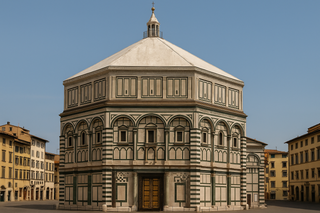
In the heart of Florence once stood “the temple where the baptistery is now located.”[1] Positioned as a Florentine centerpiece, the temple served as a sacred relic to Mars, son of the king of the gods in Roman mythology, Jupiter.[2] Mars, the god of war, was the lover

Evidence-Based Practice (EBP) is founded on a simple yet demanding premise: decisions should be grounded in the best available research evidence, informed by professional expertise, and shaped by contextual factors such as organisational priorities or patient values. In healthcare and other leadership contexts, this balance is not achieved by chance
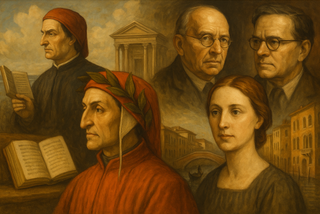
To live the life of the mind is to navigate the deep currents of thought and the restless tides of the world with the scholar’s precision and the poet’s eye. Here, the arc of a life bends toward the True, the Good, and the Beautiful, and the work

The keynote address for incoming doctoral students at Freed-Hardeman University, titled On Being Scholarly, was delivered by Dr. Shawn D. Mathis, PhD, on May 13, 2018, in Henderson, TN. You are a scholar; these are your fellows. Individually, you are scholars. A scholar is one given to serious academic inquiry.

Reflective Commentary (2025) The following essay was written in 2014 for one of my earliest doctoral courses at Faulkner University. Dr. Robert Woods led the course titled “Introduction to Human Letters." An Evaluative Inquiry into the Life of the Modern Liberal Individual Leisure and festivity together form the foundation

Reflective Commentary (2025) The following essay was written in 2014 for one of my earliest doctoral courses at Faulkner University. Dr. Robert Woods led the course titled “Introduction to Human Letters." An Evaluative Inquiry into the Life of the Modern Liberal Individual Leisure and festivity together form the foundation
by Shawn D. Mathis, PhD, MSc (Oxon), MA
Reflective Commentary (2025) This essay examines the layered meeting point of pagan and Christian traditions in Renaissance Florence, using the transformation of the Temple of Mars into the city's Baptistry as a symbol of wider cultural and theological interplay. My intent is not only to recount historical transitions
by Shawn D. Mathis, PhD, MSc (Oxon), MA
Reflective Commentary (2025) Composed during the course of my doctoral research, this essay is presented as an original scholarly inquiry into the nuanced negotiations of faith, authority, and the hermeneutics of tradition. As with Underhill’s steady regard for the interior life and Ackroyd's measured historicism, my approach
by Shawn D. Mathis, PhD, MSc (Oxon), MA
Reflective Commentary (2025) Looking back at this essay more than a decade after I first wrote it in 2014, I see how my thinking about "wasted time" has changed. When I wrote this as a doctoral student, leisure, contemplation, and intellectual growth were seen as important. Now, the
by Shawn D. Mathis, PhD, MSc (Oxon), MA
Reflective Commentary (2025) On reflection, writing this essay was both a rigorous and rewarding endeavour. My intention was to break down Kant’s dense definition of ‘fine art’ into manageable parts in order to make sense of his philosophy for myself and, hopefully, for my readers. I approached this by
by Shawn D. Mathis, PhD, MSc (Oxon), MA
Reflective Commentary (The Modern Wall—Media Saturation in 2025) Ray Bradbury published Fahrenheit 451 on October 19, 1953—seventy-two years ago, but who’s counting in decades when the man seemed to write in centuries? Was he a prophet? Or something else; something we don’t quite have a word
by Shawn D. Mathis, PhD, MSc (Oxon), MA
